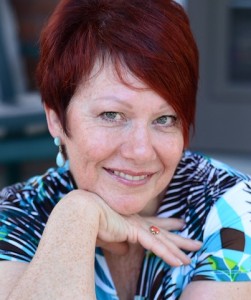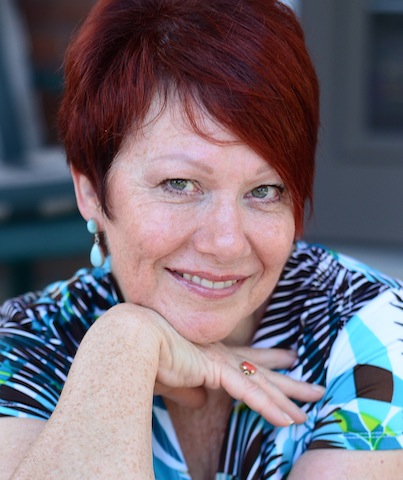 Everyone has a story. I’m not talking about a fictional tale they can create. I’m referring to the story of their real lives, the experiences and difficulties they have faced or are in the midst of.
Everyone has a story. I’m not talking about a fictional tale they can create. I’m referring to the story of their real lives, the experiences and difficulties they have faced or are in the midst of.
Everyone has one – a story. It’s often my first thought when someone shares the painful parts of their life with me. The more I connect with people the more this truth become apparent. It happens a lot. Maybe that means I’m a good listener. I like to think I’m also a good observer.
The majority of the general population is extroverted, or so the experts tell me – as high as 90% in North America according to some profiles. So these people will, in all likelihood show the effects of their ‘story’ mostly in their overt behaviours, in observable ways. We may not know what their stories are unless they tell us but they tend to act it out more than think it out.
Then there are the rest of us, the introverts. They tend not to act out the effects of our stories in easily observable ways. They are more likely to stay in the backgrounds, almost invisible. I suspect that introverts are more likely to become the victims of bullies, who, I find have radar for victims. I wonder how many members of energetic team sports are introverts. I’d bet they are in the minority.
I suspect that writers (and possibly artists in general) may reverse the proportions ratio of introverts to extroverts in the general population. After reading the hints and even self-disclosures I have read on the various threads, blogs, and groups I am connected with as a writer I am convinced that the majority of writers are introverts. Not all of us, of course. Generalisations are dangerous.
I believe that we introverts (yes, I am one) look at the world differently, and that those of us called to be writers possibly do so even more. I imagine most of us are avid people watchers. Otherwise how could we create characters that our readers recognise and identify with. Our special ability to observe and analyse human behaviour puts us in a position to be able to offer our unique observations, insights and analyses to our audience in a format that can invite the reader to look at his/her world in a new way.
We observe leaders in our communities and in the world offering their opinions, their values and their agendas in overt ways. They use speech, persuasion, and even coercion to bring others to their point of view. Their influence is observable and often quantifiable. And that becomes the benchmark we use to gauge success as leaders. We judge who can call themselves leaders by the observable influence they wield. We label someone a leader based on his/her overt behaviour. Leaders are those in the public eye. Right? But soon they are replaced by other ‘leaders’. Their influence is often short-lived.
My sense is that writers observe more keenly and analyse more deeply than the rest of the world. Often those thoughts do not get overtly challenged because they are not dispersed aloud, or with enough force, for the masses to hear. But those thoughts, observations and analyses find their way into what we write, whether it is a factual essay or a piece of fiction. We take the ‘stories’ we see and hear and give them a voice. We reveal the people behind the ‘story’. And we offer new ways of looking at both the stories and the people living them. Our scribblings show human nature through new eyes, suggest alternate ways of judging situations and interactions, offer creative solutions to common problems, for individuals as well as groups, even societies. Sometimes we create our own societies in order to allow a perspective that would not be possible in a known culture.
Readers have an opportunity to respond to our offerings without the interference of what I call ‘mainstream chatter’. They can digest what they read on its own merit. And I believe that can change thoughts and opinions, and eventually, behaviours. It can, and I believe does, expand the world view of our audience.
Writers are so often plagued by the sense that we have no influence, that we reach no one, that we get lost between the cracks. We are wracked by self-doubt. Perhaps it is time to set that destructive thought on its ear. Perhaps we have far more influence than we suspect. Perhaps we are much more effective agents for change than we give ourselves credit for. Just because we do not have people clamouring for our direction does not mean we are ineffectual.
Don’t they say still waters run deep? So do our thoughts – and the written words that are born from them. We may not see observable results, but I believe the effects, though subtle, are there and infuse public opinion in ways that bring long term change. We will never get credit for it, but as introverts, do we really want that?
The pen IS mightier than the sword. Believe it.
* * * * *
Yvonne Hertzberger is a Contributing Author at Indies Unlimited and author of Back From Chaos and Through Kestrel’s Eyes, Books One and Two of Earth’s Pendulum, an Epic Fantasy trilogy. For more information please see the IU Bio page and her blog at http:/yvonnehertzberger.com[subscribe2]


Hi Yvonne, What a great article with many insights into human behaviour.
Yes, everybody has a story and some more than one: One of ours got published last October, 'The Perfect Crime a story of truth or fantasy,' and it is starting to have an effect in many directions. As you say at the end of your price the word is mightier than the sword. You only have to listen to Court judges to realise what effect the words they deliver to discover that; they are wonderful wordsmiths, if nothing else.
Food for thought for all writers: The person who controls the word, controls everything.
90% of Americans are extroverts! That explains the success of those awful reality shows.
Oh so right. lol
I agree that good writers are also good observers. This may mean in social settings, they observe rather than act or interact.
I am undecided on whether this means writers are introverted. Many authors love to engage with others on the subject of writing in general and their own writing in particular.
Perhaps we prefer to engage others and be known through the prism of our authorial works and accomplishments, rather than on an exclusively personal basis. Is that introverted? I don't know.
The way Meyers-Briggs explains it is that introverts prefer one-on-one or small groups and get energy from being with their own thoughts more, while extroverts are energized by being with larger numbers of people and interacting with them. Seems to be more a numbers game rather then whether we interact at all.
That is too much for my simple brain but I do know that when we interact with others we produce a powerful energy.
True. 🙂 Isn't that what's happening here? 🙂
I am a full-on introvert. Don't know which came first, the introversion or the desire to write, but watching and listening to other people does stir up a lot of writing material. In some ways, it's like being the designated driver.
Great analogy, Laurie!
Excellent article! Hi, my name is Arlene and I am an introvert and a writer. "Broken Spokes" is the story of my life and what it took for me to find the balance between being invisible and an over-achiever. Currently, I am working on my second book – the story of my son's last 12 years in the Army – through my eyes!
Finding that balance is a challenge for most of us. The new book sounds like a great idea.
Keen observations, keenly observed, Yvonne.
Thanks JD
I read somewhere that it's very easy to find out which of the two you are: if you hate small talk, you're an introvert. Or this: introverts tend to think before talking, whereas extroverts tend to think by talking. Interesting. Excellent post, Yvonne.
Oh, and there are some people who are equal parts introvert and extrovert, called ambiverts! No lie.
I like that explanation. It fits, I think.
I suppose we all wear several faces because we can appear different to many people.
That's what makes being a writer so interesting, trying to tease pout the stories behind the faces.
I am a born introvert and an observer of people since I was a small child. But I will say that as a result, I learned things that were being taught to others, learned behaviors, learned nuances of speech and how one word could change the tide of loud speech. So while the extroverts might look down upon us quiet ones, I don't think they would manage very well without us. I am the mother of 2 extroverts adults and they can be very overwhelming to me now that I can enjoy my 'alone' time writing. I have so much fodder for writing after all these years to get down on paper. My short story collection is mounting and will be coming out very soon. I enjoy being an introvert.
So true, Cherune. The extroverts do not always appreciate us but I think we add something that they cannot. Glad your writing is going well. Welcome here.
If we have the courage to accept it. Sometimes that is a big leap.